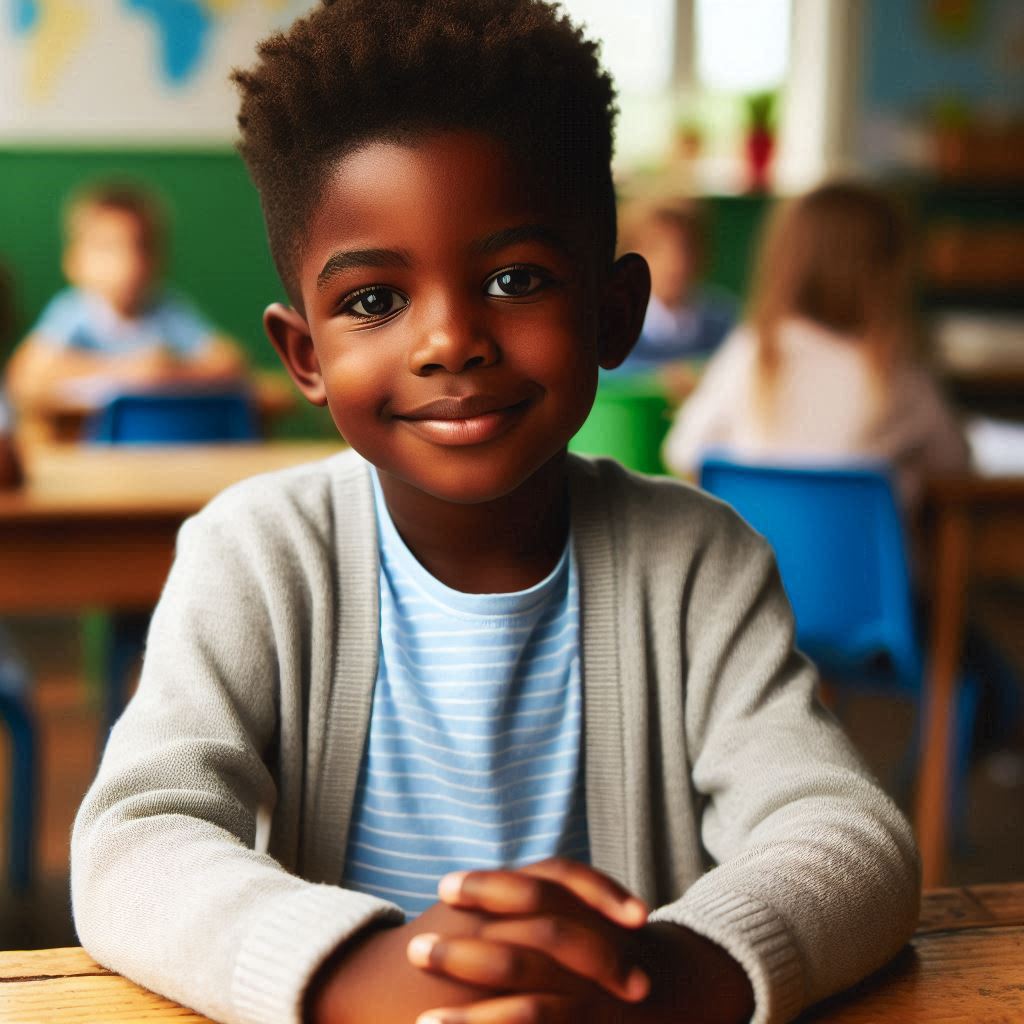Introduction
Educational toys play a crucial role in the development of nursery school children.
These toys are specifically designed to stimulate learning in a fun and interactive way.
Defined as toys that are designed to educate or instruct, educational toys cater to various learning styles and abilities.
Educational toys help children develop essential skills such as problem-solving, critical thinking, and creativity.
These toys also enhance hand-eye coordination and fine motor skills.
They encourage children to explore and discover new concepts, fostering a love for learning from a young age.
Educational toys promote social interaction and communication skills as children engage with others during play.
There is a wide variety of educational toys available for nursery school children, including building blocks, puzzles, shape sorters, and musical instruments.
These toys are often colorfully designed to capture children’s attention and keep them engaged.
STEM toys, which focus on science, technology, engineering, and mathematics, are becoming increasingly popular for young children.
These toys help develop problem-solving skills and introduce basic concepts in these fields.
When selecting educational toys for nursery school children, consider their interests and developmental stage.
Choose toys that are age-appropriate and provide opportunities for open-ended play.
Look for toys that are durable, safe, and encourage creativity and imagination.
Rotate toys regularly to keep children engaged and prevent boredom. Provide a variety of toys to cater to different learning styles and interests.
Types of Educational Toys
Building Blocks
- Building blocks help children improve fine motor skills.
- The process of stacking blocks enhances hand-eye coordination.
- Children can learn basic math concepts through counting and sorting blocks.
Puzzles
- Puzzles enhance problem-solving skills and cognitive development.
- They improve spatial awareness and logical thinking in children.
- Completing puzzles boosts confidence and a sense of accomplishment in kids.
Pretend Play Toys
- Pretend play toys encourage creativity and imagination in children.
- They help kids develop social skills and learn how to cooperate.
- Playing with pretend toys allows children to role-play and express themselves.
Educational toys play a crucial role in a child’s development. Whether it’s building blocks, puzzles, or pretend play toys, each type offers unique benefits that aid in various aspects of a child’s growth.
By incorporating these toys into a nursery school environment, educators can create a more engaging and enriching learning experience for young children.
Read: Benefits of Montessori Education in Nigeria
Benefits of Educational Toys
When it comes to nursery school children, educational toys play a crucial role in their overall development.
These toys are designed to engage and stimulate young minds, helping them learn important skills while having fun.
Here are some key benefits of incorporating educational toys in nursery school settings:
Cognitive Development
- Improving Problem-Solving Skills: Educational toys often require children to think critically and solve problems, which helps in building their cognitive abilities.
- Enhancing Critical Thinking: By engaging with educational toys, children learn to analyze situations, make decisions, and think logically.
- Promoting Curiosity: Educational toys spark children’s curiosity and encourage them to explore new concepts, ideas, and solutions.
Physical Development
- Developing Fine Motor Skills: Many educational toys involve activities that require children to use their hands and fingers, thereby improving their fine motor skills.
- Improving Hand-Eye Coordination: Activities like building blocks or puzzles help children coordinate their hand movements with their visual perception.
- Enhancing Gross Motor Skills: Some educational toys involve physical movements that promote balance, coordination, and strength in children.
Social and Emotional Development
- Fostering Creativity: Educational toys encourage children to express themselves creatively, think outside the box, and explore their imagination.
- Improving Communication Skills: Through play, children learn to communicate with others, express their thoughts and feelings, and collaborate effectively.
- Building Social Bonds: Educational toys that promote group play help children develop social skills, learn to share, take turns, and cooperate with their peers.
Overall, incorporating educational toys in nursery school settings can have a significant impact on children’s cognitive, physical, social, and emotional development.
It provides them with a fun and interactive way to learn and grow, setting a strong foundation for their future academic success and overall well-being.
Read: Special Education Needs in Nigerian Primary Schools
Considerations When Choosing Educational Toys
In choosing educational toys for nursery school children, there are several important considerations to keep in mind to ensure that the toys are not only fun but also beneficial for their development.
Age-appropriateness
It is crucial to select toys that are suitable for the child’s developmental stage.
This means considering their age, interests, and abilities to ensure that the toys will be engaging and stimulating for them.
Safety
When choosing toys for young children, safety should always be a top priority.
Make sure that the toys are made from non-toxic materials and are free from small parts that could pose a choking hazard.
Additionally, opt for toys that are durable and can withstand rough play without breaking.
Educational value
Look for toys that offer educational value and provide learning opportunities in various areas such as cognitive development, fine and gross motor skills, language and communication, social skills, and creativity.
These toys should encourage children to think, problem-solve, and explore new concepts in a fun and engaging way.
Interactive features
Choose toys that are interactive and encourage children to actively engage with them.
This could include toys that require building, sorting, matching, or problem-solving activities.
Interactive toys help enhance children’s motor skills, hand-eye coordination, and cognitive abilities while keeping them entertained and focused.
By keeping these considerations in mind, you can select educational toys that are not only entertaining but also promote your child’s growth and development in a holistic way.
Read: Developing Reading Skills in Early Childhood

How to Incorporate Educational Toys in Nursery School Curriculum
Educational toys play a crucial role in the development of young children by promoting learning through play.
Here are some effective ways to incorporate educational toys into the nursery school curriculum:
Integrating educational toys into lesson plans and activities
- Identify learning objectives: Before selecting educational toys, educators should determine the specific skills or concepts they want children to learn.
- Choose age-appropriate toys: Select toys that are suitable for the children’s developmental stage to ensure they are engaging and beneficial.
- Align toys with curriculum goals: Integrate educational toys that align with the curriculum to reinforce classroom learning objectives.
- Rotate toys regularly: Regularly changing the toys available to children can keep them interested and engaged in learning.
- Provide guidance and supervision: Teachers should observe children playing with educational toys and provide guidance when needed to enhance learning opportunities.
Creating an engaging and interactive learning environment for children
- Organize play areas: Set up designated areas in the classroom for different types of play, such as imaginative play, building blocks, and puzzles.
- Incorporate hands-on activities: Include hands-on activities using educational toys to promote interactive learning experiences.
- Encourage group play: Promote collaboration and social interaction by incorporating group activities with educational toys.
- Use open-ended toys: Provide children with toys that allow for open-ended play and encourage creativity and problem-solving skills.
- Personalize learning experiences: Tailor educational toys to individual children’s interests and strengths to maximize learning outcomes.
Encouraging exploration and discovery through play
- Foster a curiosity-driven environment: Encourage children to explore and discover new concepts and ideas through hands-on play.
- Support experimentation: Provide opportunities for children to experiment with different educational toys to develop critical thinking skills.
- Facilitate inquiry-based learning: Promote a learning environment where children can ask questions, seek answers, and learn through exploration.
- Promote problem-solving skills: Encourage children to solve problems independently while playing with educational toys.
- Celebrate successes and failures: Recognize children’s efforts and achievements when playing with educational toys, regardless of the outcome.
By incorporating educational toys into the nursery school curriculum, educators can enhance children’s learning experiences, promote skill development, and foster a love for learning through play.
Transform Your Career with Expert Guidance
Get personalized mentorship consulting that’s tailored to your unique path. Our expert advice is actionable and exclusive.
Get StartedRead: Importance of Play in Nursery Education
Explore Further: Business Education and Vocational Training in Nigeria
Learn More: Future of Building and Woodwork Tech in Nigerian Education
Tips for Parents and Teachers
Providing a balance of educational toys to cater to different needs and interests
- Include toys that encourage problem-solving, creativity, and physical activity.
- Consider toys that focus on literacy, numeracy, and sensory development.
- Choose toys that promote social skills, teamwork, and communication.
Rotating toys to keep children engaged and motivated
- Regularly introduce new toys to prevent boredom and spark curiosity.
- Rotate toys based on themes or learning objectives to maintain interest.
- Encourage children to explore and play with a variety of toys to stimulate different skills.
Involving children in the selection and use of educational toys to promote autonomy and decision-making skills
- Allow children to choose toys based on their interests and preferences.
- Encourage children to set goals for using educational toys and track their progress.
- Support children in exploring different ways to play with toys and express their creativity.
By following these tips, parents and teachers can optimize the benefits of educational toys for nursery school children.
It’s essential to create a stimulating and engaging environment that fosters learning and development in young minds.
Remember that play is a child’s natural way of learning, and educational toys can enhance this process by providing fun and interactive experiences!
Learn More: Importance of Cybersecurity Education in Nigeria
Conclusion
Educational toys play a vital role in enriching the learning experiences of nursery school children.
These toys offer hands-on engagement and stimulate creativity, curiosity, and problem-solving skills.
Parents and teachers alike should prioritize the use of educational toys in nursery school settings to support children’s cognitive and social development.
These toys create a fun and interactive learning environment that fosters a love for learning.
The long-term benefits of incorporating educational toys in early childhood education are substantial.
Children who engage with these toys tend to exhibit higher levels of academic achievement, critical thinking skills, and emotional intelligence.
By investing in educational toys, parents and teachers are investing in the future success of children.
These toys provide a solid foundation for lifelong learning and equip children with the essential skills needed to thrive in a rapidly changing world.
The use of educational toys in nursery school settings is not just beneficial but essential for holistic child development.
It is imperative that parents and teachers recognize the value of these toys and make them a central part of every child’s educational journey.




